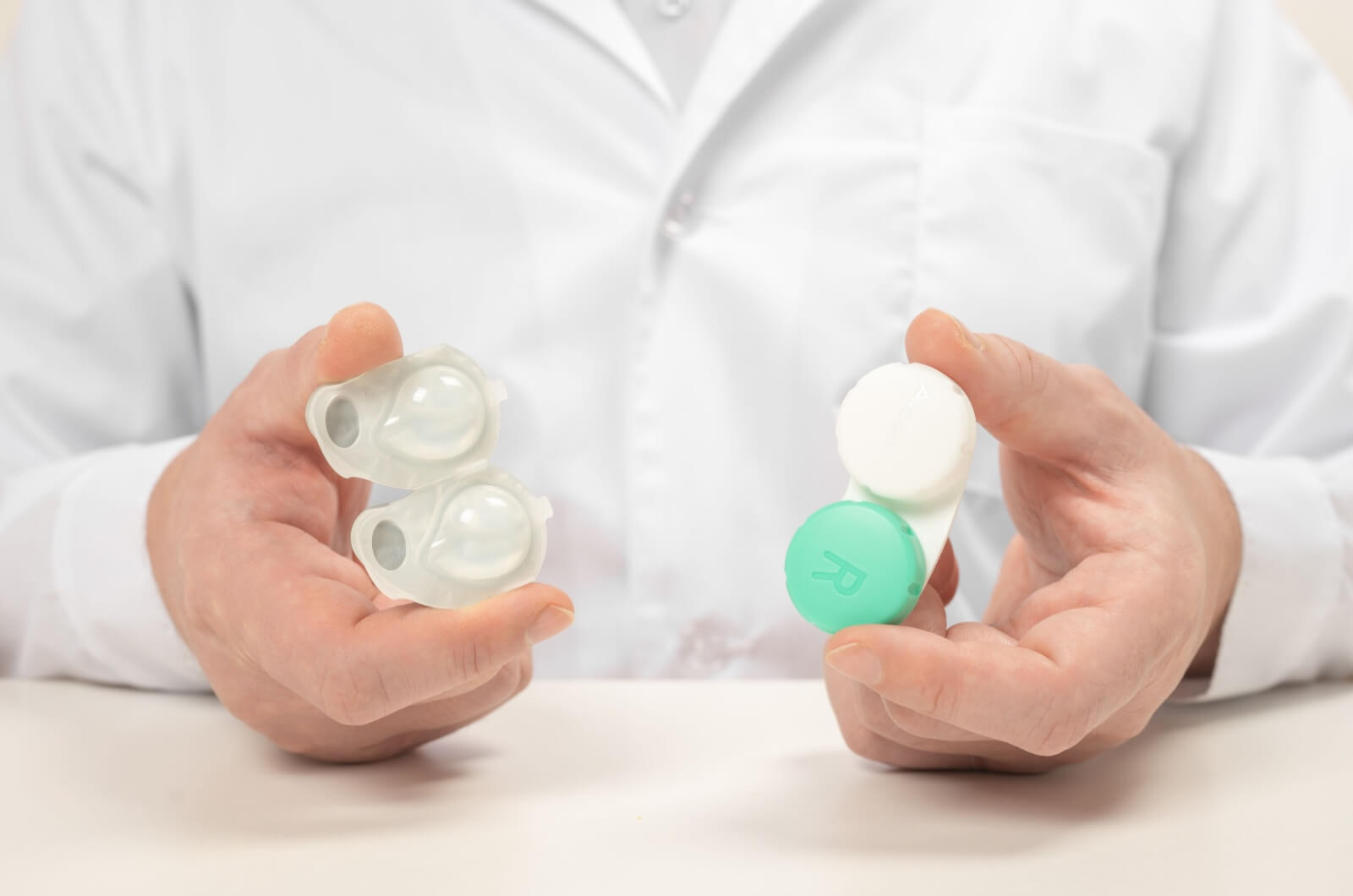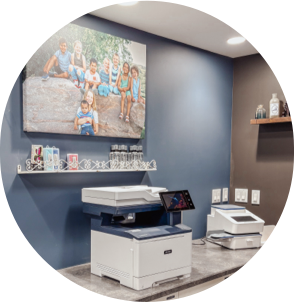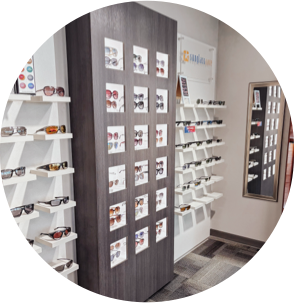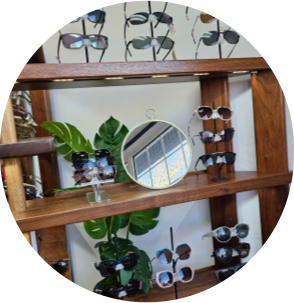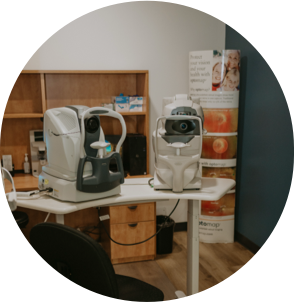Contact lenses offer a convenient and flexible alternative to glasses in vision correction. Understanding the lifespan of your contacts can help you avoid exposing your eyes to lenses that are past their prime—keeping your eyes from drying out, getting irritated, or developing an infection.
However, the longevity of contact lenses depends on their type. Some daily wear lenses should be replaced daily, while others should be replaced every other week. Reusable contact lenses can even last a month before they need to be changed.
If you’re worried about whether you’re using your contact lenses correctly, consider contacting your optometrist. Regular comprehensive eye exams and contact lens exams allow your optometrist to monitor your eye health, offer advice, and answer any questions you may have.
Types of Contact Lenses
Disposable Contact Lenses
Disposable contact lenses are known for their convenience and hygiene benefits. These lenses are perfect if you prefer a low-maintenance routine or want to avoid cleaning solutions altogether. In short:
- Daily disposables are designed for single-day use
- Bi-weekly disposables are designed for up to fourteen days
Biweekly lenses require more care—proper cleaning and storage are needed to minimize the risk of eye infections. But even the lifespan of disposable lenses depends on their design and your wearing habits.
Following the manufacturer’s guidelines will help keep your lenses—and your eyes!—safe. Never extend the wear time of disposables beyond what’s recommended, as this can lead to discomfort and potential eye issues.
Reusable Contact Lenses Lifespan
Reusable contact lenses, also known as monthly or extended-wear lenses, provide a more cost-effective option for those who frequently rely on contacts. These lenses are typically worn for up to 30 days, with some designs allowing for continuous wear—even overnight—under the guidance of your optometrist.
While reusable lenses offer flexibility, they also require regular cleaning and maintenance to ensure that they remain safe for your eyes. Using a quality cleaning solution to store and disinfect your lenses every night can help keep them in top condition.
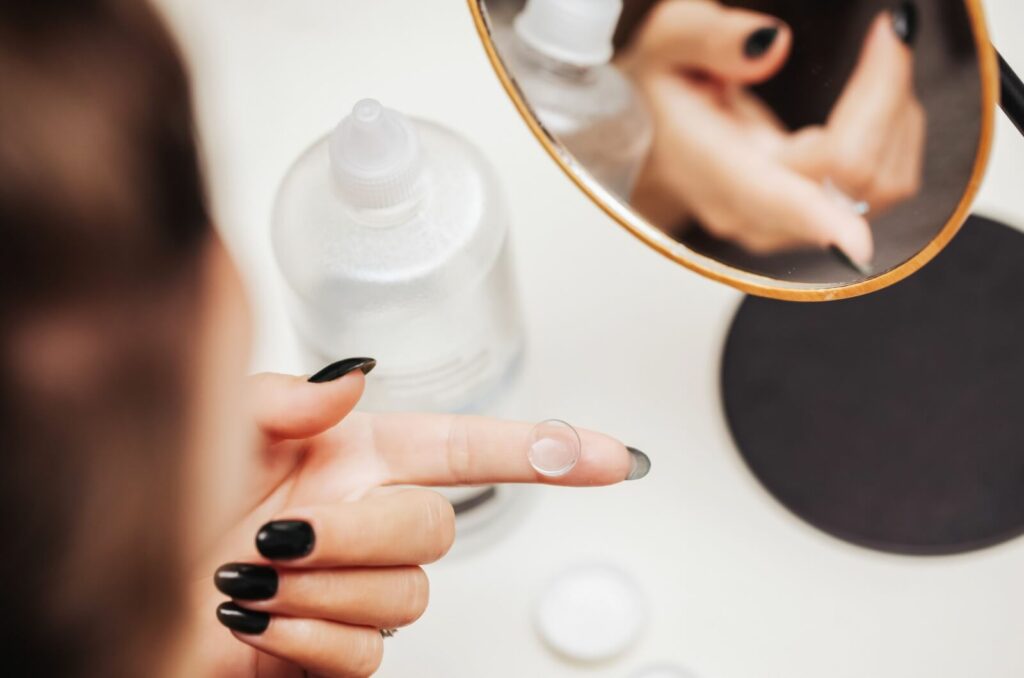
Additionally, it’s essential to be mindful of the expiry date on your reusable lenses. Even if they still feel comfortable, wearing them beyond their recommended lifespan can pose a risk to your eye health. Replacing lenses as scheduled not only maintains your visual clarity but also protects the overall well-being of your eyes.
Replacement Frequency of Contact Lenses
Regularly replacing your lenses ensures that you always have a current prescription. It also allows you to benefit from the latest lens materials and technology.
Ignoring replacement guidelines can lead to issues such as the accumulation of lipid or protein deposits on your lenses, which can make lenses uncomfortable and can cause potential complications like irritation, redness, and even more severe conditions. To ensure that your eyes stay healthy, stick to the replacement schedule set by your eye care professional.
Maximum Life of Contact Lenses
It’s important to note that the maximum lifespan for a pair of contact lenses is based on consistent, everyday wear. If you wear your lenses sporadically, you might think that extending their lifespan is okay—but this isn’t advisable. The natural wear and tear of lenses can affect their integrity and comfort over time.
Will I Ever Need to Stop Wearing Contact Lenses?
With proper care and regular check-ups, you can usually wear contact lenses for as long as you need vision correction. What’s most important is that you don’t wear any given pair of contacts outside of their recommended lifespan.
Your eye care professional will monitor your eye health and adjust your prescription or lens type as necessary.
Understanding Contact Lens Expiry Dates
Like many medical devices, contact lenses come with an expiry date. This date indicates the period during which the lenses remain safe and effective. It’s important to adhere to these dates, even if the lenses appear unused or unopened.
Expired lenses may lose their integrity, leading to discomfort or potential harm to your eyes. The materials in older lenses can also degrade, affecting their fit and oxygen permeability. Always check the expiry date before using a new pair of lenses.
Proper storage of lenses is necessary in order to maintain their shelf life. Keeping lenses in a cool, dry place away from direct sunlight helps preserve their quality and effectiveness. By being mindful of expiry dates and storage conditions, you ensure that your lenses provide optimal performance and safety.
Risks of Using Expired Contact Lenses
As contact lenses age, the solution they’re kept in begins to break down. This solution protects the lenses and keeps the lenses comfortable and moist. Once the solution degrades, the lenses are no longer protected.
Wearing expired lenses has a number of possible risks, including:
- Inflammation of the eye
- Sensitivity to light
- Scarring
- Eye infections
- Eye Pain
- Partial or total vision loss
If you’re unsure about the status of your lenses, consult your eye care professional for advice on safe and effective lens use.
Tips for Maintaining Contact Lens Health
Here are a few tips to ensure your contact lens experience is both enjoyable and safe:
- Cleanliness is Key: Always wash your hands thoroughly before handling your lenses.
- Follow the Schedule: Regularly replacing your lenses prevents build-up and ensures optimal performance.
- Proper Storage: Daily, store your lenses in a clean case with fresh solution.
- Routine Check-ups: Schedule regular eye exams to monitor your eye health and update your prescription as needed.
By incorporating these practices into your daily routine, you can enjoy the benefits of contact lenses while maintaining the health and safety of your eyes.
Enjoying Your Contact Lens Journey
Contact lenses are a fantastic way to achieve clear vision without the hassle of glasses. However, it’s important to remember that each kind of lens has its own unique guidelines, so follow the advice of your eye care professional.
At Prairie Vision, we understand that your vision needs are unique. That’s why we offer personalized and quality eye care to help you maintain clear and comfortable vision. Contact us today to see how we can help you best take care of your contact lenses.

